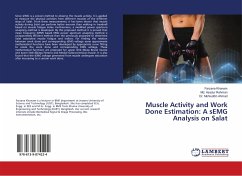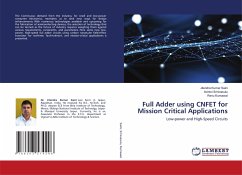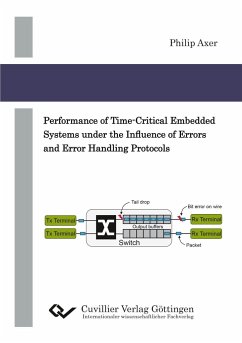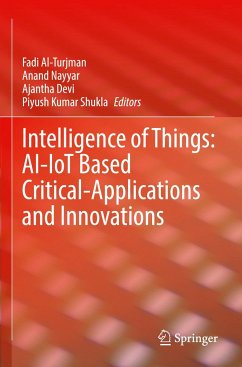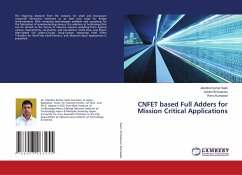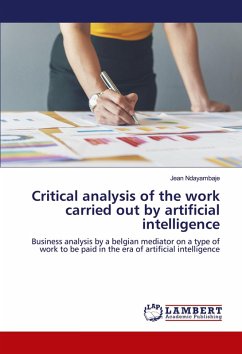
Critical analysis of the work carried out by artificial intelligence
Business analysis by a belgian mediator on a type of work to be paid in the era of artificial intelligence
Versandkostenfrei!
Versandfertig in 6-10 Tagen
71,99 €
inkl. MwSt.

PAYBACK Punkte
36 °P sammeln!
This book identifies sources of solution on the contribution of human resources, taking into account the new form of workers to be paid but not now in 2024. Because they are not living beings and because they have a physical form of robot or equipment connected to artificial intelligence not needing material goods such as food, housing, clothing, etc.The fact of not having to provide professional income in exchange for the contribution of remuneration to this new category of workers, is an incentive that pushes employers to prefer the preparation of artificial intelligence to put them to work,...
This book identifies sources of solution on the contribution of human resources, taking into account the new form of workers to be paid but not now in 2024. Because they are not living beings and because they have a physical form of robot or equipment connected to artificial intelligence not needing material goods such as food, housing, clothing, etc.The fact of not having to provide professional income in exchange for the contribution of remuneration to this new category of workers, is an incentive that pushes employers to prefer the preparation of artificial intelligence to put them to work, instead of financing institutions that prepare human beings for trades and arts. This choice seems to be a very clever human alienation, because the act of programming an artificial intelligence by teaching a job to an object, risks being dangerous because of the disorder of competition created by this human alienation. The wake of artificial intelligences that work in an invisible unpaid way abuses the acquired know-how of humanity. The reader of this analysis is a professional with the knowledge to distinguish human law from the law related to objects.







